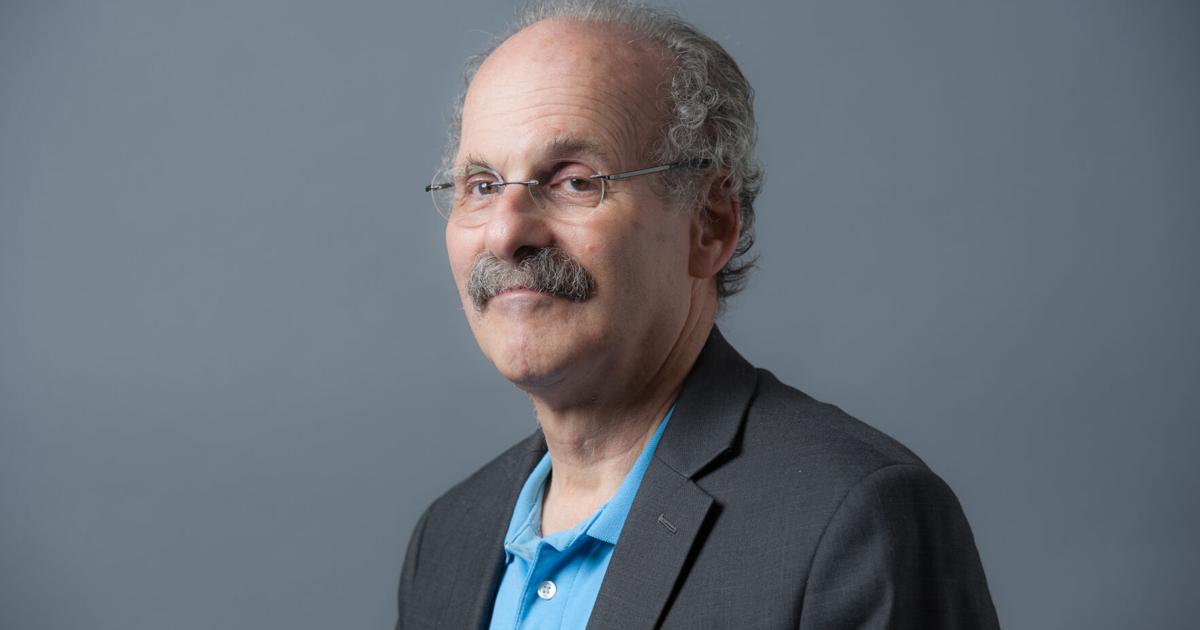“Pianist-journalist” is not a common professional title, but it describes the career of Donald Isler, who is a piano teacher, concert pianist, artist and record producer for his own label, KASP Records.
What connects all these professional experiences is his pleasure in writing. Isler is an essayist and interviewer specializing in the classical piano scene. Earlier this year, the Irvington resident decided to compile many of his writings into a book called “Afteroughts of a Pianist/Teacher: A Collection of Essays and Interviews.”
Even readers unfamiliar with the world of classical piano can appreciate Isler’s philosophy on what it takes to be a successful musician. Classical music lovers will find that Isler met, befriended or studied with some of the greatest pianists of the 20th century.
“Maybe 20 years ago I started writing concert reviews, and I put them on a site called guidemusiqueclassique.com, [for] professional musicians and music lovers,” Isler said. “Seven years ago I started a Facebook page called ‘Isler’s Insights’, where I wrote reviews, and had the idea to start interviewing musicians.”
His friend Robert Sherman, an eminent music critic and concert host for WQXR radio, encouraged him to compile his work into a single volume.
“It’s my first book, it took me 70 years,” he joked. But perhaps it takes the wisdom and hindsight of a septuagenarian to offer such an interesting insight into his subject.
Isler was raised in the Riverdale section of the Bronx by parents who both played the piano. “They were very good amateurs,” he said. His grandparents also played chamber music, and hearing classical music was a constant in the Isler household, where there was likely a record playing a performance by Arthur Rubinstein.
Isler was 8 when he got his first lesson from a neighbor, Sina Berlinski, a German-born pianist who had fled the Nazis and moved to New York. “I think I had eight piano teachers altogether from youth to middle age,” he said. “Some of them weren’t very well known. My teachers Bruce Hungerford and Constance Keene were great musical figures. Music is such a fun field – your reputation and quality isn’t necessarily tied to your success.
A graduate of the Manhattan School of Music, Isler has taught at different schools and given private lessons to generations of students. He is on the faculty of the Hackley School’s Institute of Music, a complement to Tarrytown’s independent day school music programme.
He also practices the piano every day. “I don’t want to become one of those little old people who stopped improving,” he said. “It’s a matter of personal growth. And when you stop doing that, you also stop improving your teaching quality.
He also attends many concerts. “You draw inspiration from the talent you’re exposed to,” he said. “For little kids, ages 3, 4 or 5, listen to recordings. Just let them hear good music.
Starting music lessons when a child is barely out of diapers isn’t necessarily a positive for Isler. “Parents worry if they don’t start early enough they will lose some of their talent,” he said. “A good age to start classes is 6, 7, or 8. You don’t want to put off classes they’re not ready for.”
Isler has dealt with all kinds of parents, from the most ambitious to the most indifferent. The topic of how much a student should practice comes up in his essays, but he has no solution for parents who want their offspring to practice more.
“Everyone is a different case,” he said. “Sometimes you can drive kids. I have sometimes suggested to parents whose children are reluctant to practice, to offer a reward. But don’t insist. »
It may even be a good idea to let a child take a break from lessons if they don’t want to practice.
“They can always come back,” he said. “If you want to take piano lessons and you have time to work on it…you need time to practice, otherwise you and the teacher will both be frustrated.”
He concludes that if you’re not ready to put in the time, you can always “go to classes where you can hear great piano music.” Isler said not all kids “have the fight and the talent to keep going…If it’s not the right thing for you, take another path.”
Isler sympathizes with his students. In an essay entitled “A Piano Teacher’s New Year’s Resolutions”, he resolves, among other things, to “try to recognize and encourage any new progress” because “we sometimes accept that the piece sounds good today and forget how she sounded worse the last time”. week” and “I will try to be more patient when the student is moving in the right direction, but not as quickly as I would like.
The interview section of the book presents readers with a parade of interesting personalities, some of whom are famous and others who Isler thinks will be. For example, readers meet Yihang Li, a 9-year-old cellist prodigy from China, and Aleksandr Bolotin, a 15-year-old Russian pianist who has won international performance competitions. He also interviews WQXR’s Sherman, who recently celebrated his 90th birthday.
And he interviewed Ruth Westheimer, the nonagenarian German-accented sex therapist who became a television personality (“Dr Ruth”) in the 1980s. A classical music lover, her late husband, Fred, was one piano students from Isler for years. Always ready to give advice on sex, she also makes this observation: “Music is there to console you when you are sad, and the songs of your childhood are important. Everyone should write a journal of what the music in their life is telling them.
“Afteroughts of a Pianist Teacher: A Collection of Essays and Interviews” is published by iUniverse and is available at amazon.com.

